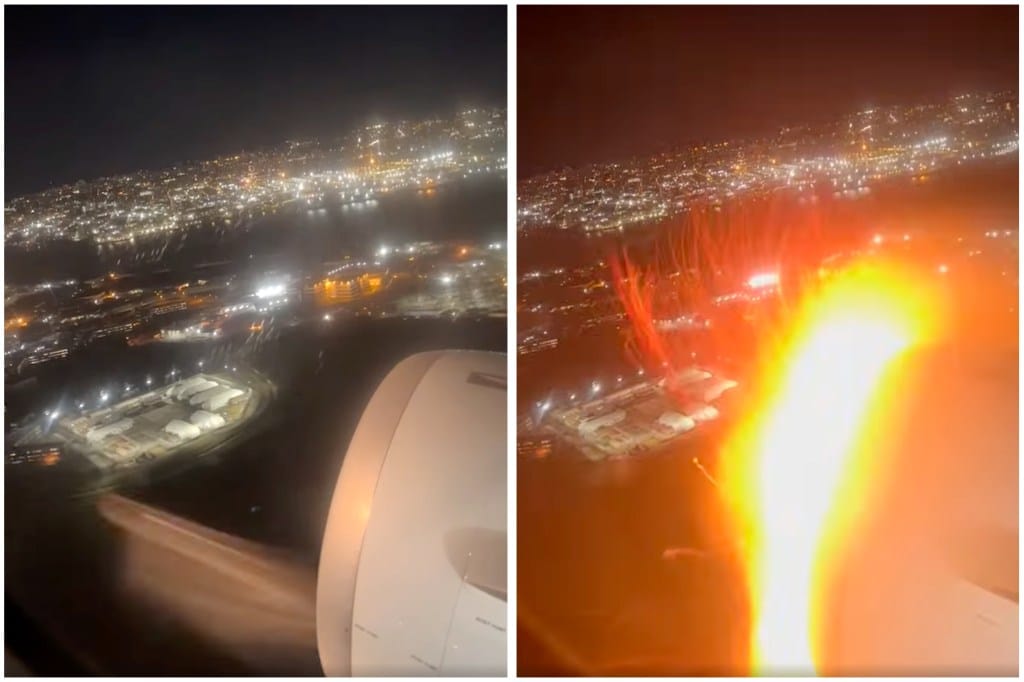
The next World Cup will be in the United States of America, Canada and Mexico (Image: MICHAEL REYNOLDS/EPA-EFE/REX/Shutterstock)
Thomas Tuchel is set to begin his journey as England manager – but who the German will face next has remained a mystery until now. That is set to become clear thanks to the upcoming 2026 World Cup European qualifying draw, which decides which nations the Three Lions play in the qualifying groups.
It will become clear which nations Tuchel, who previously managed Chelsea, must navigate past in order to ensure his side will secure a place among the world’s greatest footballing nations in the United States, Mexico and Canada in one-and-a-half-years’ time.
Tuchel’s contract as England boss is due to end in 2026, suggesting he has a single shot at securing a major international title with the Three Lions. The 2026 World Cup promises to be the biggest in the tournament’s history, featuring 48 nations instead of the customary 32. Ahead of Friday’s draw, Express Sport takes you through everything you need to know.
What time is the draw and how to watch it?
The draw will commence at 11am UK time on Friday in Zurich. It can be streamed live on fifa.com.
How will qualifying work?
The 54 UEFA nations eligible for qualification will be divided into six groups of four teams and six groups of five teams. Russia continues to be suspended. A total of 16 European countries will qualify for the first 48-team finals in 2026 – the 12 group winners will automatically advance, followed by an additional four teams via play-offs scheduled for March 2026.
Sixteen nations will enter the play-offs: The 12 group runners-up and the four best-ranked group winners from the Nations League who did not win their group or finish second in main qualifying. These 16 teams will be divided into four ‘paths’, with each path’s victor earning a ticket to the tournament.
How will the draw unfold?

The World Cup draw will be in Zurich (Image: Getty Images)
The qualification draw is made more complex by the final stages of the Nations League. The four teams in Pot One who reach the Nations League finals in June will each need to be in a four-team World Cup qualifying group, as they cannot begin regular qualifiers until September.
Teams participating in the two-leg Nations League promotion and relegation play-offs will also be unable to play World Cup qualifiers in March, but could still be drawn in a five-team group and play their eight qualifiers during the international breaks in June, September, October and November.
Who can England face?

Thomas Tuchel’s first England match will be in March (Image: The FA via Getty Images)
England, thanks to their recent performances in major tournaments, have the advantage of being in pot one. As a top seed, Tuchel’s side will avoid heavyweights like Spain, France, Germany, Italy and others.
However, the Three Lions could still find themselves in a challenging group, with Greece, Ukraine, Norway, Sweden, Turkey and Wales all in pot two. There’s also the chance of some Great British derbies, with Wales, Scotland, Northern Ireland and Republic of Ireland all in pot three.
Scotland and the Republic of Ireland are both set to compete in the Nations League play-offs. Scotland will have to overcome Greece in a two-legged tie to stay in Nations League A, while Ireland must defeat Bulgaria to hold onto their spot in Nations League B.

England will find out their opponents on Friday, December 13 (Image: CameraSport via Getty Images)
The pots in full are below:
- Pot One: Spain, Germany, Portugal, France, Italy, Netherlands, Denmark, Croatia, England, Belgium, Switzerland, Austria
- Pot Two: Ukraine, Sweden, Turkey, Wales, Hungary, Serbia, Poland, Greece, Romania, Slovakia, Czech Republic, Norway
- Pot Three: Scotland, Slovenia, Republic of Ireland, Albania, North Macedonia, Georgia, Finland, Iceland, Northern Ireland Montenegro, Bosnia-Herzegovina, Israel
- Pot Four: Bulgaria, Luxembourg, Kosovo, Belarus, Armenia, Kazakhstan, Azerbaijan, Estonia, Cyprus, Faroe Islands, Latvia, Lithuania
- Pot Five: Moldova, Malta, Andorra, Gibraltar, Liechtenstein, San Marino
Are there any restrictions?

Teams like Finland are not allowed to be in the same group as certain nations (Image: Lehtikuva/AFP via Getty Images)
Yes, there are several scenarios where certain nations cannot be drawn against each other. For political reasons, Ukraine and Belarus, as well as Gibraltar and Spain, cannot be grouped together. Additionally, Kosovo must be kept separate from Serbia and Bosnia and Herzegovina.
Extreme weather conditions also influence which countries can be grouped together. Only two of Estonia, Finland, Latvia, Lithuania, Norway, the Faroe Islands and Iceland, can be placed in the same group, with the latter two not allowed to share a group as they are considered the nations most at risk of severe weather.
Geographical limits are also imposed on Kazakhstan, Azerbaijan and Iceland, to ensure the three countries are not having to do too many trips to the other side of Europe.
When will the games be played?

England’s first World Cup qualifying match will begin in the spring (Image: PA)
The games will be spread over 10 matchdays over the course of five international breaks. These will occur from March 21-25, June 6-10, September 4-9, October 9-14 and November 13-18.
However, England won’t necessarily be playing on all those dates, as there’s a limit of eight games. Some teams will kick off in March and others in June, while four teams won’t start until September.
The play-offs are scheduled for March 26-31, 2026.








